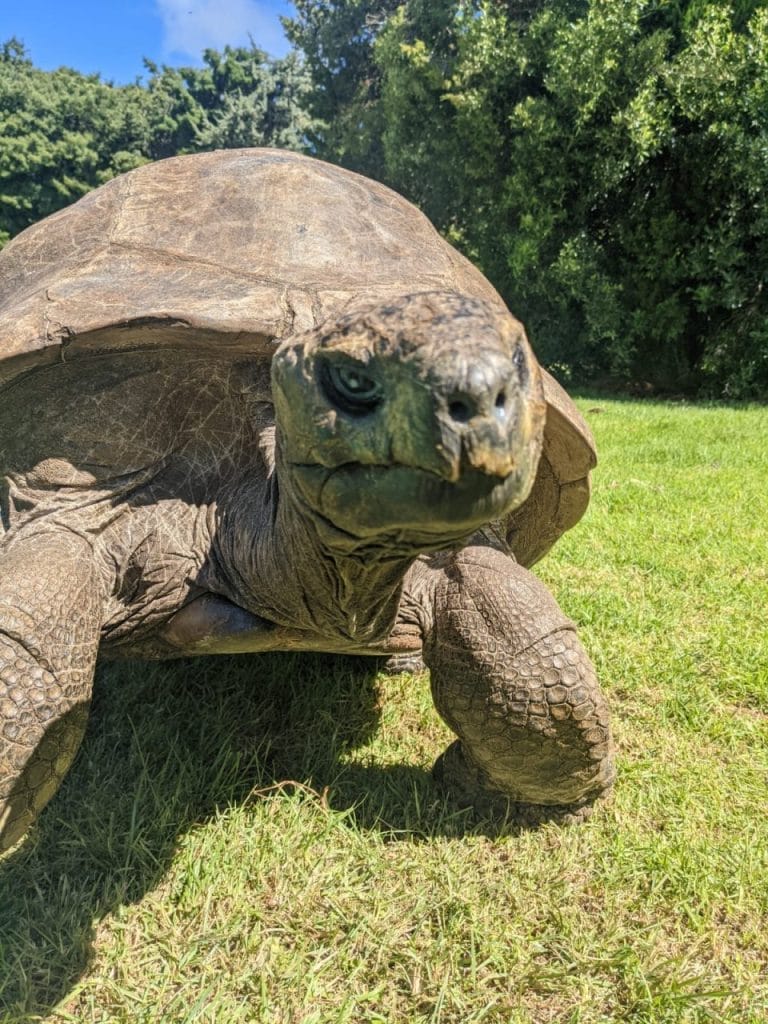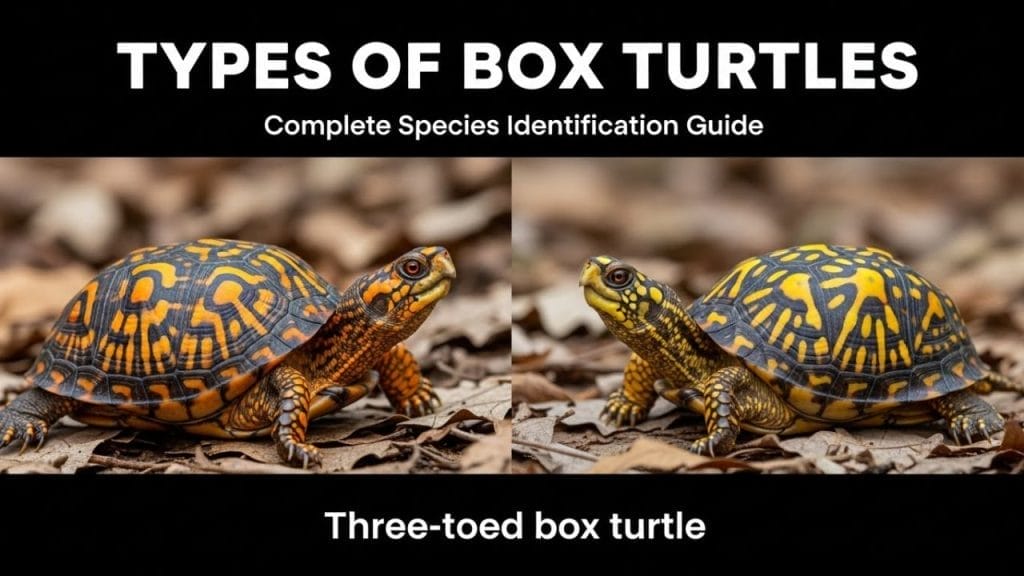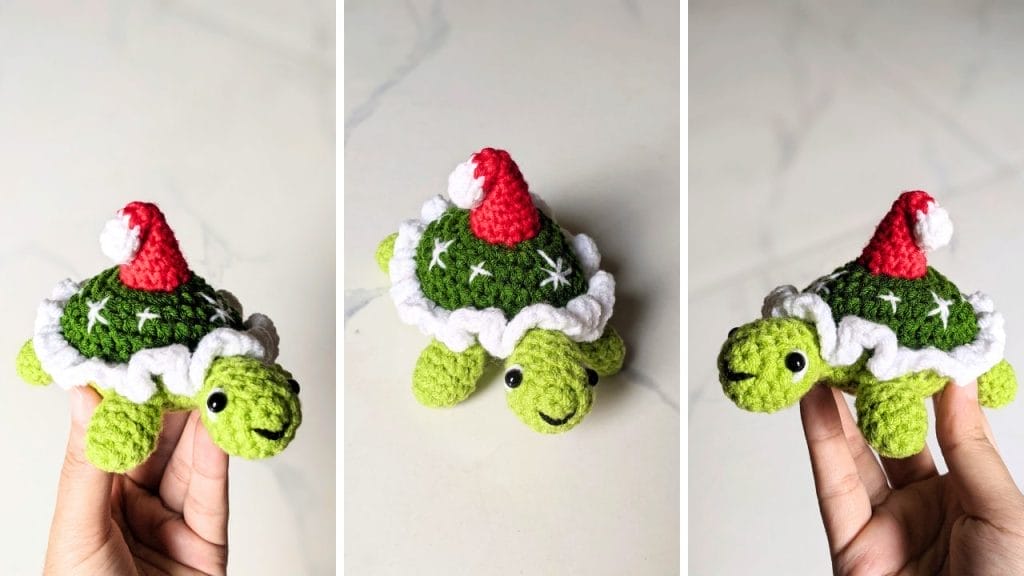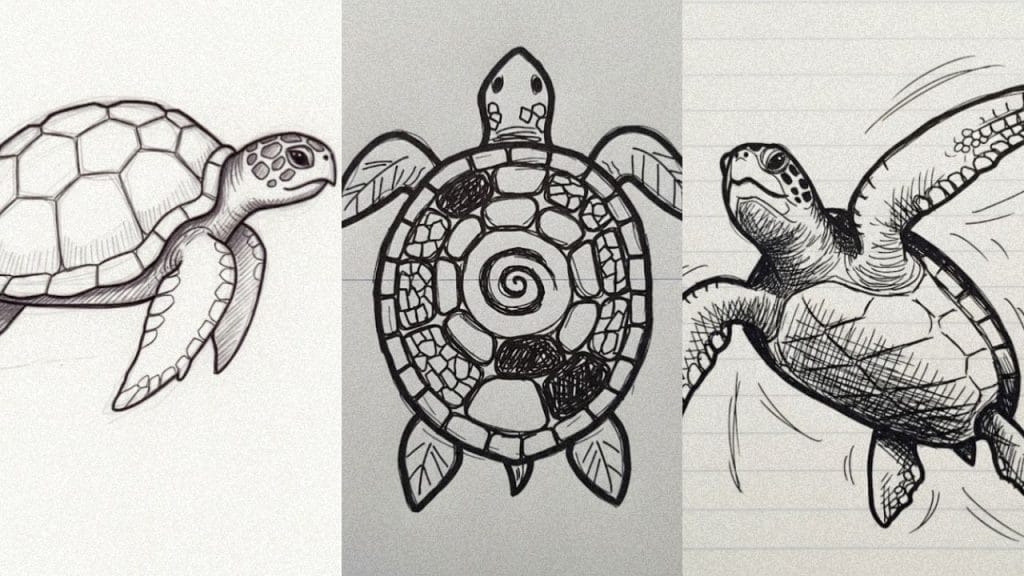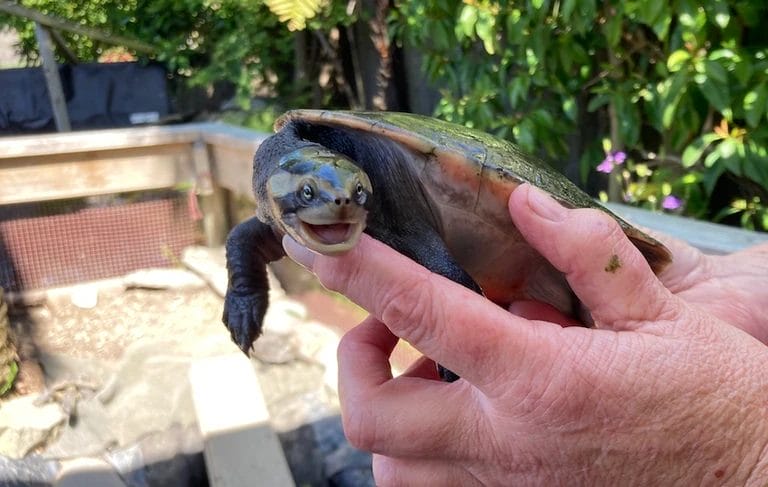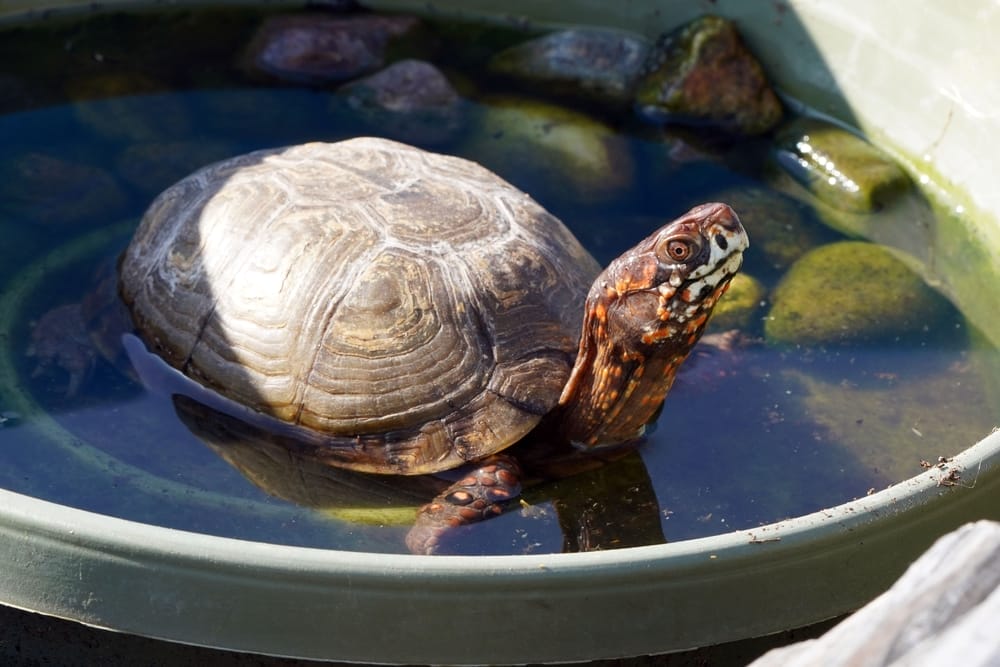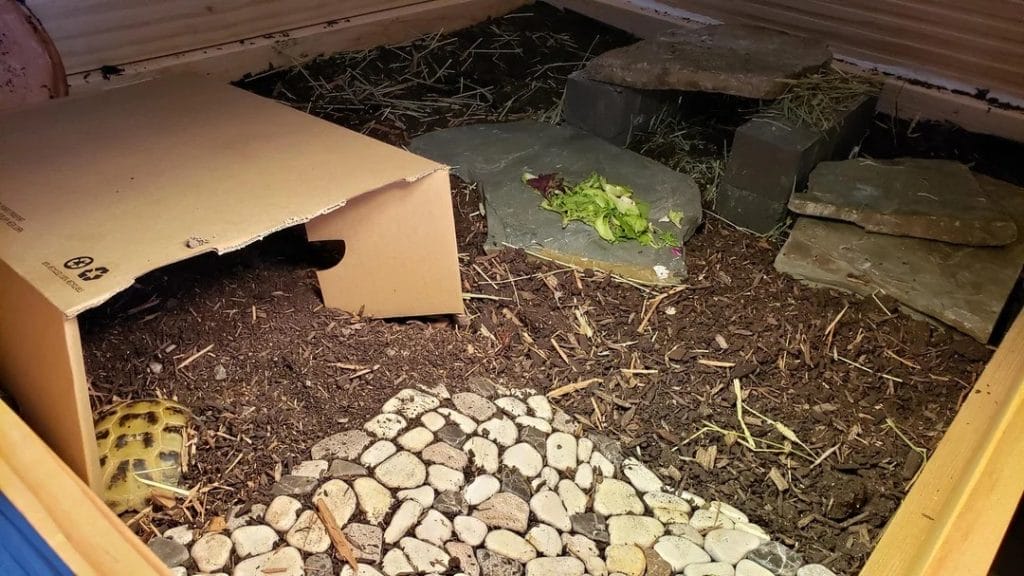What Can a 200-Year-Old Tortoise Teach Us About Living a Long, Happy Life?
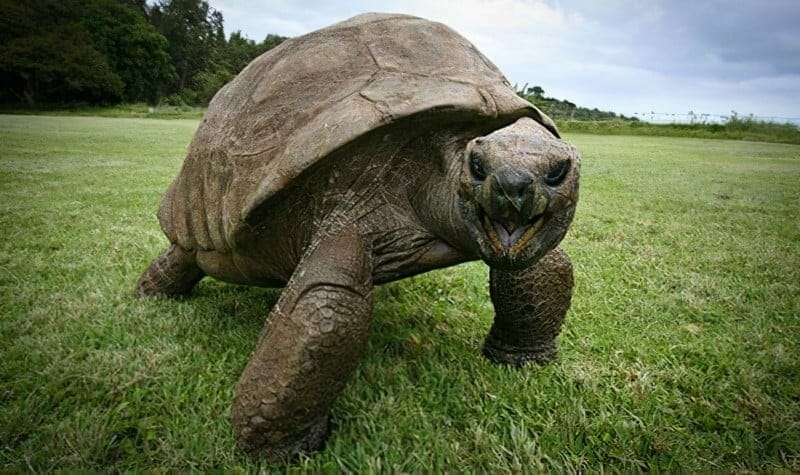
This post was created with help from AI tools and carefully reviewed by a human (Muntaseer Rahman). For more on how we use AI on this site, check out our Editorial Policy.
Picture this: while you were scrolling TikTok this morning, a giant tortoise named Jonathan was probably munching on some grass, completely unbothered by the world around him.
The crazy part? Jonathan was born around 1832 — before the Civil War, before the Eiffel Tower, before your great-great-great-grandparents were even born.
At 192 years old, this guy has lived through 40 U.S. presidents and still shows up every day like he’s got all the time in the world.
Plot twist: he literally does.
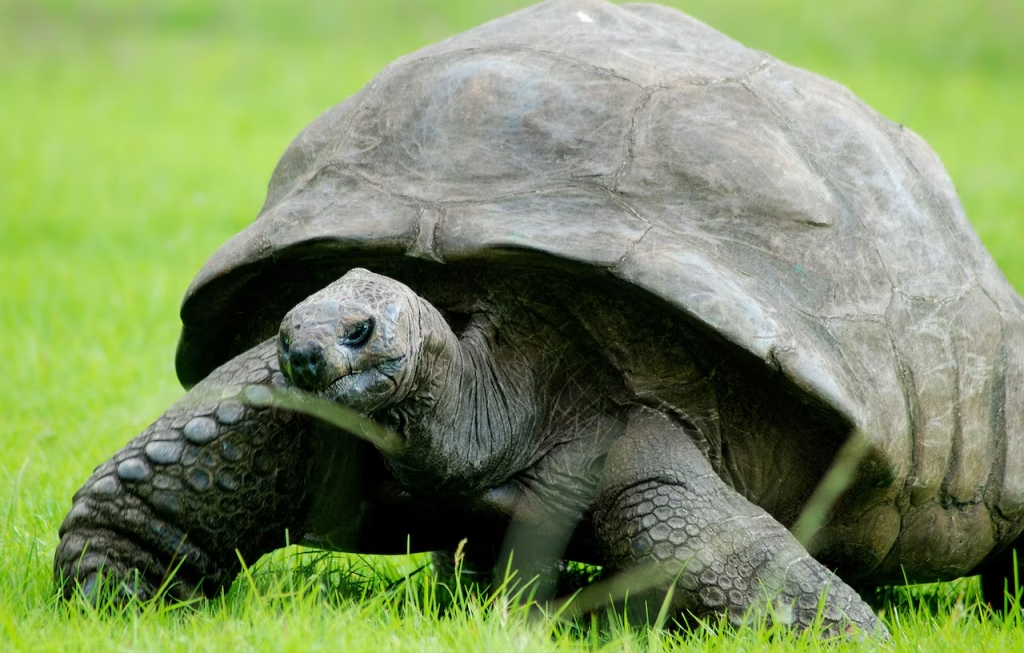
Meet Jonathan: The Ultimate Life Goals
Jonathan isn’t just any tortoise. He’s officially the world’s oldest living land animal and holds the Guinness World Record as the oldest tortoise ever recorded.
This Seychelles giant tortoise has been chilling on Saint Helena Island since 1882, when he was gifted to the island’s governor.
Here’s what blows my mind: Jonathan is blind from cataracts, has lost his sense of smell, but still has a healthy appetite and — brace yourself — a strong libido at 192 years old.
The guy’s still trying to mate with his tortoise buddies Emma and Frederik!
Meanwhile, I pulled my back getting out of bed last Tuesday.
The Science Behind Tortoise Superpowers
Secret #1: They’ve Mastered the Art of Slowing Down
Tortoises have incredibly slow metabolisms, burning energy at a much lower rate than faster animals, which reduces oxidative stress and cellular damage — major contributors to aging.
Think about it like this: if your phone battery drains slower, it lasts longer before it needs replacing.
Their slower metabolic rate also allows them to survive longer periods without food or water, making them highly resilient to harsh environmental conditions.
Human lesson: Maybe we don’t need to hustle 24/7. Sometimes the tortoise really does beat the hare.
Secret #2: Superior DNA Repair Shop
This is where it gets wild. Giant tortoises have gene variants that enhance DNA repair, reducing mutations that can lead to cancer and age-related deterioration.
Unlike many other vertebrates, tortoises have evolved mechanisms to suppress tumor formation, increasing their chances of living longer, healthier lives.
Basically, while our DNA is like that one friend who breaks everything they touch, tortoise DNA is like having a professional repair crew on standby 24/7.
Secret #3: Built-in Armor Changes Everything
Animals with hard shells (like turtles and tortoises) barely aged at all, challenging the idea that aging is evolutionarily inevitable.
Species with physical protection aged five times slower than species with neither form of protection.
Having a shell isn’t just about looking cool — it’s a life insurance policy.
Their hard shells serve as armor-like defense, protecting them from predators, extreme weather, and environmental hazards, significantly reducing their mortality rate.
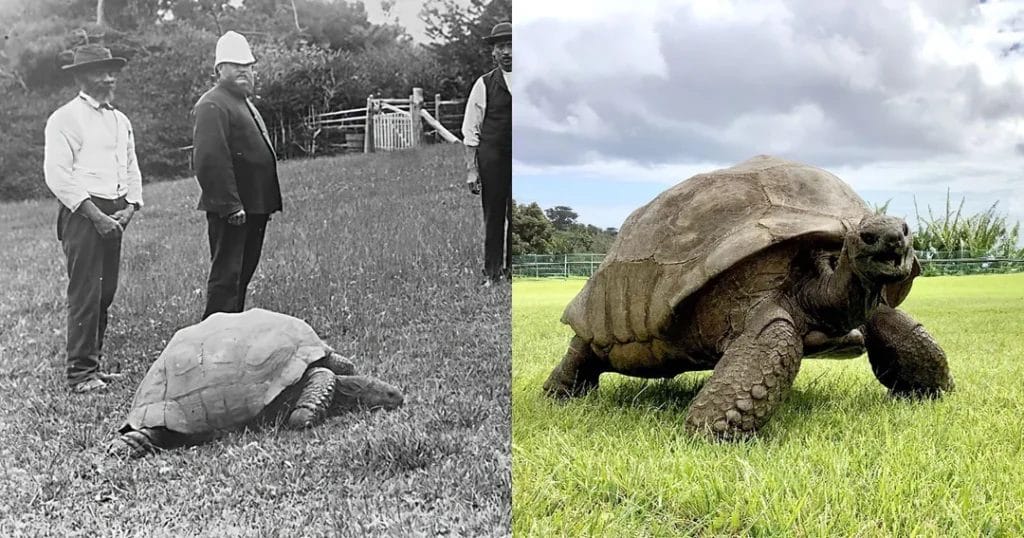
This Hilarious Turtle Book Might Know Your Pet Better Than You Do
Let’s be real—most turtle care guides feel like reading a textbook written by a sleep-deprived zookeeper.
This one’s not that.
Told from the snarky point of view of a grumpy, judgmental turtle, 21 Turtle Truths You’ll Never Read in a Care Guide is packed with sarcasm, sass, and surprisingly useful insights.
And hey—you don’t have to commit to the whole thing just yet.
Grab 2 free truths from the ebook and get a taste of what your turtle really thinks about your setup, your food choices, and that weird plastic palm tree.
It’s funny, it’s honest, and if you’ve ever owned a turtle who glares at you like you’re the problem—you’ll feel seen.
What Jonathan Can Teach Your Daily Life
Embrace the Slow Life
Jonathan doesn’t rush anywhere. Ever. Their slow pace of life allows them to invest energy in maintaining their physical health, including their shells, muscles, and organs.
Try this: When you feel stressed about deadlines, channel your inner tortoise. Take it slow, be methodical, focus on one thing at a time.
Eat Your Greens (Like, Really)
Tortoises follow a herbivorous diet rich in nutrients and low in harmful substances, which contributes to their well-being and longevity by providing essential nutrients, fiber, and antioxidants.
No complicated meal plans or expensive supplements — just plants, plants, and more plants.
Build Your Shell
You can’t grow an actual shell (unfortunately), but you can build metaphorical protection. Living a sheltered life free from natural predators and human disturbances plays a significant role in their extended lifespan.
Modern translation: Set boundaries, reduce unnecessary stress, create a safe space for yourself.
Don’t Rush the Big Stuff
Giant tortoises don’t have to rush into reproduction to keep their species alive — they essentially reserve their biological resources to keep themselves alive rather than relying on them for early procreation.
Maybe we shouldn’t be in such a hurry to check every life milestone off by 30.
The Weirdest Part: Some Tortoises Might Not Age At All
Ready for this? Some researchers have hypothesized that turtles and tortoises could live forever if they managed to avoid predators and disease.
In some turtle populations, especially those in captivity, their mortality rate can actually decrease with age.
Let that sink in: While we’re over here buying anti-aging creams, tortoises are literally getting better with age.
The Bottom Line: Slow and Steady Wins at Life
Jonathan has watched the world change around him for nearly two centuries, and he’s still going strong. His secret isn’t some miracle supplement or complicated biohack.
It’s simpler than that:
- Move slowly and deliberately
- Eat mostly plants
- Build strong defenses (boundaries)
- Don’t stress about timelines
- Focus on maintenance over quick fixes
Scientists are now studying tortoise biology to develop anti-aging treatments, cancer research strategies, and immune system enhancements for humans.

But maybe we don’t need to wait for science to catch up. Maybe the lesson is right there in front of us: sometimes the best way to live a long, happy life is to slow down, protect your peace, and remember that life isn’t a race.
Jonathan has been alive since 1832 and he’s still trying to get lucky at 192. If that’s not life goals, I don’t know what is.
Next time you’re stressed about being “behind” in life, remember Jonathan. He’s been taking it one slow step at a time for nearly 200 years, and he’s still the happiest, horniest reptile on Saint Helena Island.

About Author
Muntaseer Rahman started keeping pet turtles back in 2013. He also owns the largest Turtle & Tortoise Facebook community in Bangladesh. These days he is mostly active on Facebook.

